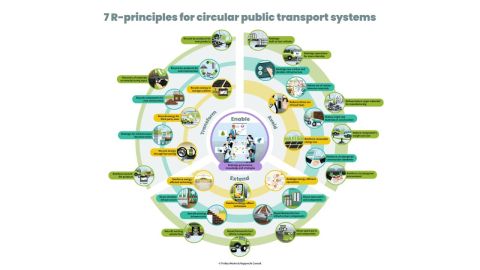
The session will explore the intersection of circular economy principles and energy transition within the public transport sector in European cities/regions by presenting the main challenges and opportunities in integrating circular economy aspects into public transport. Through expert presentations from the Interreg CE4CE partners (introducing the newly developed Knowledge Platform, strategies and action plans) and group discussions, participants will gain insights into innovative practices.
- Local and regional | Mobility and Transport | Circular economy
- Code: Side241333
- Online Session
Speakers
Moderator
Practical information
- When
-
Thu 21/11/2024, 14:00 - 16:00 CET
- Where
- Online Session
- Type of partnership
- EURegionsWeek close to you
- Format
- Side
- Theme
-
Smart and sustainable growth for regions
- Language
- English
- Website
-
https://www.interreg-central.eu/projects/ce4ce/

Partner

Leipzig Public Transport Company
Reporting
Session summary
Shift to Circular Processes: Transitioning from linear ('take, use, dispose') to circular approaches is essential for reducing the carbon footprint of public transport. The Circularity Compass was introduced as a tool to help transport operators assess their circular economy status and develop strategies for greater sustainability.
Economic Opportunities: Implementing circular economy principles can lead to more resource-efficient use and open up new economic opportunities through extended life cycles and more efficient maintenance.
Technological Innovations: Advancements in artificial intelligence (AI) and digital twins are crucial for future-proofing public transport. The city of Bergamo presented a pilot project utilizing sensors and AI-based algorithms for predictive maintenance of trams, enabling early problem detection and efficient maintenance.
Digital Twins for Energy Simulation: The use of digital twins to simulate energy flows in cities was highlighted, demonstrating their potential in optimizing energy consumption and enhancing sustainability in urban public transport systems.



